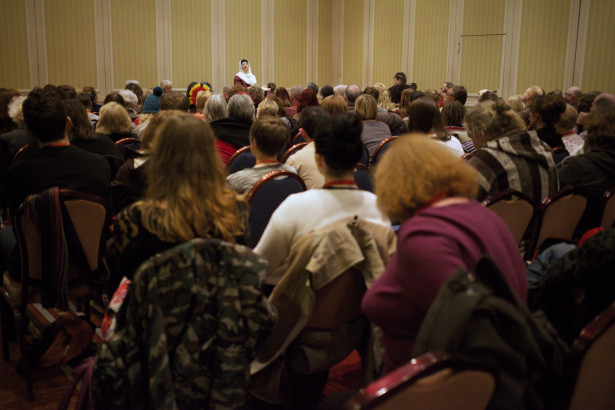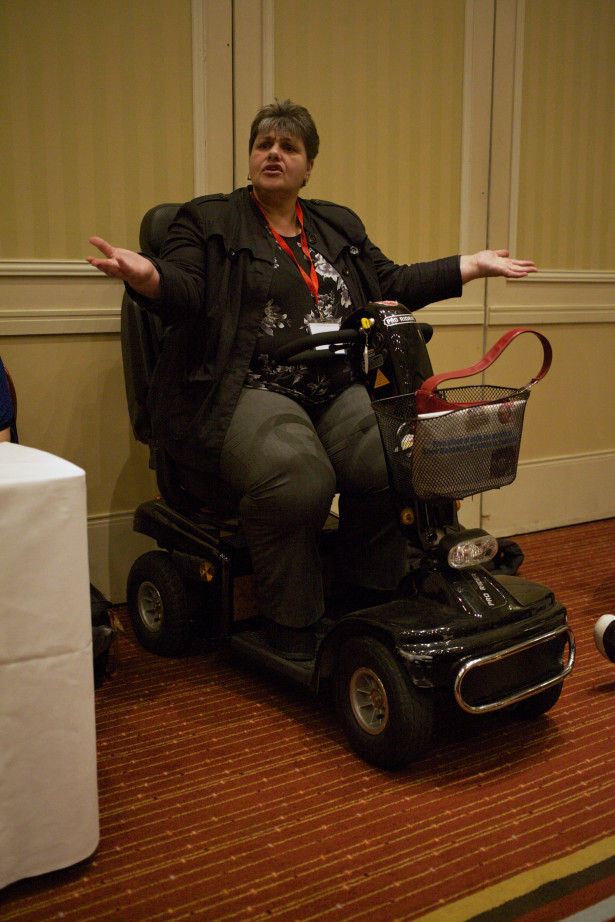
From the Indignados to Occupy to the anti-austerity protests all over Europe people have begun pointing out the cracks in the system: governments and other democratic institutions are no longer working for the citizens. Capitalism and corporatism have usurped the place of the people in the decision-making process.
For resistance movements around the world the struggle to change this state of affairs can come at a heavy price: arrests, threats, intimidation, violence and even death. But for the people of Scotland the first step towards radical change is as simple as choosing one of two options at the ballot box: yes or no.
The Scottish Independence Referendum is less than a year away. But those who attended the 2013 Radical Independence Conference, or RIC 2013, have already started to look beyond voting day. “I do not see independence as an end to itself. I see independence as a means for a radical Scotland,” said Dennis Canavan of the YES Scotland campaign, just one among the many groups and political parties came together under the conference banner.
“It’s an opportunity to remove the corporate capture of our state,” Scottish Green Party councillor Maggie Chapman said. “Major economic decisions must be made by the people for the people.”
Countless media articles have presented the independence debate as the political football of First Minister Alex Salmond and his Scottish National Party, but RIC 2013 showed it was much more than that. The event drew about a thousand people from across the progressive political spectrum, from elected members of the Scottish parliament to citizens without partisan affiliation. Going beyond the recognized clichés of kilts, whiskey and Braveheart — something an Al Jazeera English documentary sadly failed to do — the conference focused its attention on a vision for “another Scotland” to replace what they saw as the failures of Britain.
The evidence can be damning. Although Scotland is an oil-rich country, an estimated 900,000 families live in fuel poverty, unable to heat their homes in bitter winters. Food banks are sprouting up all over the country to help hungry families, but are still struggling to meet the demand. One in five children are born into poverty even as the British government in Westminster talks about cutting benefits. Meanwhile, massive corporations like Amazon, Google and Starbucks are getting away with tax evasion relatively unscathed.

The participants of RIC 2013 were fed up, not just with a particular government but the whole system. Disability activist Susan Archibald put it most plainly: “We have seen every party shit on the most vulnerable!” To them, something has to give, and an independent Scotland is the only way their vision will have a shot at becoming reality.
Some might feel that the policy talk is jumping the gun; it is far from clear that the Scots will vote “yes” come September 2014. Robin McAlpine of the The Jimmy Reid Foundation warned the audience against complacency with a sports metaphor: “Remember, this is Scotland. We can be three-nil with two minutes left and still lose!”
Yet these discussions have a power of their own, showing voters the potential to rebuild their country and choose a new direction for Scotland. It is a chance that many in countries like Brazil, Turkey and Greece can only dream of, but right now only Scotland has this opportunity.
This is no time for resting on one’s laurels. Even a “yes” vote could bring little joy if these radicals do not see things through. “Beyond the ‘yes’ vote we must not take our foot off the accelerator and breathe out,” urged Robin McAlpine. “We have to rebuild our new institutions. By October 2014 we must be the architects of a new nation.”
Ultimately, that was the goal of RIC 2013: to set everyone on the path towards building a new, more equitable Scotland. There was little talk about how to organize to bring radical change to post-referendum Scotland, but much on what to organize for. Apart from the plenaries focusing on the failures of the United Kingdom, what an independent Scotland could look like and where to go after 2014, various workshops touched on issues like welfare, renewable energy, education and gender equality. There was no shortage of passion and conviction, but the true test lies beyond the walls of the conference room.
